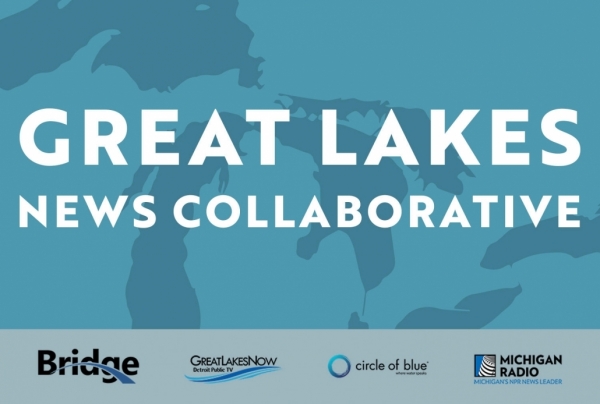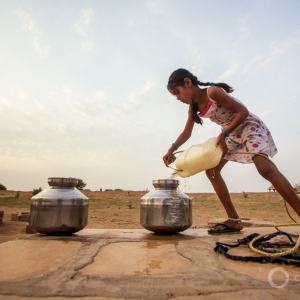FRESH, February 7, 2023: Development Planned for Greater Toronto Would Require a Controversial Water Shake-up
February 7, 2023
Fresh is a biweekly newsletter from Circle of Blue that unpacks the biggest international, state, and local policy news stories facing the Great Lakes region today. Sign up for Fresh: A Great Lakes Policy Briefing, straight to your inbox, every other Tuesday.
— Christian Thorsberg, Interim Fresh Editor
This Week’s Watersheds
- In Ontario, a plan to develop York Region includes what many say is a detrimental — and illegal — water transfer from Lake Huron watersheds to Lake Ontario.
- A new report finds that three Chicago-area facilities are among the nation’s top water-polluting oil refineries.
- A bipartisan congressional task force requests $425 million in federal funding for the Great Lakes Restoration Initiative.
- The White House announces new actions to protect against lead pipes and paint in four states, including Wisconsin and Pennsylvania.
The U.S. government halts new mining leases in a northeast Minnesota national forest for 20 years.
“With an eye toward protecting this special place for future generations, I have made this decision using the best available science and extensive public input.” — Deb Haaland, U.S. secretary of the Interior.
The Department of the Interior blocked new mining and geothermal leases, for the next 20 years, on 225,504 acres of Superior National Forest, located in northeastern Minnesota.
The watery, forested region — which includes the Rainy River watershed, the Boundary Waters Canoe Area Wilderness, and the 1854 Ceded Territory of the Chippewa Bands — was the proposed location for copper and nickel mines operated by Antofagasta PLC, a Chilean mining company.
Copper and nickel are crucial minerals for clean energy technologies. A number of existing or already-planned mines — many of which are U.S. owned and operated — are exempt from the mineral withdrawal, Reuters reports.
Fresh from the Great Lakes News Collaborative

- Michigan plastics company forced to probe PFAS contamination, cover costs — Bridge Michigan
- Binational group says it has a plan to fund clean-up of Detroit and Rouge rivers — Michigan Radio
- Book chronicles human, water connection from nomadic to modern times — Great Lakes Now
The Great Lakes News Collaborative includes Bridge Michigan; Circle of Blue; Great Lakes Now at Detroit Public Television; and Michigan Radio, Michigan’s NPR News Leader. We work together to produce news and information about the impact of climate change, pollution, and aging infrastructure on the Great Lakes and drinking water. This independent journalism is supported by the Charles Stewart Mott Foundation. Find all the work here.

Development in Toronto Would Require Major Water Shake-Up
The Narwhal reports that efforts by the Ontario government to increase development in greater Toronto would require a massive “intra-basin” water transfer between Lake Huron watersheds and Lake Ontario.
The plan — importing millions of liters of drinking water from Lake Simcoe to York Region, and exporting the area’s wastewater to treatment facilities on Lake Ontario — is seen as both environmentally risky, and in breach of international law.
According to The Narwhal, the region’s proposed development plan would cause water levels to dramatically fluctuate, disrupting the area’s natural hydrological process and placing local wetland ecosystems at risk for contamination.
Moreover, Ontario’s wastewater management system would be put to the test. By 2051, the Duffin Creek Water Pollution Control Plant would receive between 20 million and 40 million more liters of wastewater per day, which the facility would clean and dump into Lake Ontario. Proponents of the project point out that Duffin Creek, which is currently operating at less than 60 percent capacity, “has lots of room to support growth.” But the province’s track record is spotted — since 1996, 396 million liters of sewage have spilled accidentally into the lake, though largely from facilities in nearby Hamilton.
Environmentalists are doubly concerned that the project’s rushed nature violates the Great Lakes-St. Lawrence River Sustainable Water Resources Agreement, signed by eight states and two provinces, which protects against overdevelopment in the Great Lakes region and disruptions to its natural hydrology.
In the News
BIG OIL: A new report from the Environmental Integrity Project found that three Chicago-area facilities — Citgo’s refinery in Lemont, Exxon Mobil’s refinery in Joliet, and BP’s refinery in Whiting, Indiana — were among the country’s top water-polluting oil refineries.
Based on data from 2021, the three refineries cracked the top 10 for selenium discharge, while Citgo and BP’s refineries were also in the top five for nitrogen pollution.
Per the report, the average age of the country’s 129 oil refineries is 74 years. The last national wastewater laws for refineries were passed in 1985, when production at these facilities was half today’s level.
In 2021, the EPA declined to revise the nearly 40 year-old standards — despite, in 2015, moving to revise selenium and nitrogen discharge limits for coal-fired plants, which produce the toxic chemicals in nearly the same amounts as refineries.
Selenium is toxic to fish, complicates reproduction, and can cause spinal deformities, while “excess nitrogen can fill waterways with algae, making rivers and streams unsuitable for swimming or fishing, while also robbing fish and shellfish of the oxygen they need to survive.”
Looking Ahead
A BIPARTISAN ASK: Four members of Congress asked the Biden administration for $425 million for the Great Lakes Restoration Initiative (GLRI). The letter was signed by Reps. Debbie Dingell (D-MI), Bill Huizinga (R-MI), Marcy Kaptur (D-OH), and David P. Joyce (R-OH). GLRI funding supports projects in five areas: toxic substances and areas of concern; preventing and controlling invasive species; nonpoint source pollution impacts on nearshore health; protecting and enhancing native habitats and species; and laying foundations for future restoration actions.
LEAD PIPES AND PAINT: The White House announced additional actions to reduce the risk of lead poisoning. The announcement includes partnerships with local NGOs, water utilities, and labor unions. It allocates $1.2 billion for lead pipe replacement in 23 states, tribes, and territories. And it includes initiatives in Connecticut, New Jersey, Wisconsin, and Pennsylvania to accelerate pipe replacement. The Biden administration plan, first announced in December 2021, seeks to replace all of the country’s lead pipes in the next decade.
Upcoming Events
February 21-23 — Western Dredging Association 2023 Midwest Chapter Meeting — register
February 22-25 — Society of Canadian Aquatic Sciences, Montreal — register
February 23 — Sanctuary Lecture Series: Continuing Archaeological Research on the Alpena-Amberly Ridge — register
March 1 — Applications for Great Lakes Bay Watershed Education and Training for Indigenous Communities are due — apply
Other News
- Michigan’s attorney general announced that a plastics manufacturer will assess and clean up PFAS pollution, the first settlement in a series of lawsuits the state brought in 2020 against producers of the chemicals.
- Last week’s World Wetlands Day brought international awareness to the Great Lakes region and its waterways, Audubon reports.
Christian Thorsberg is an environmental writer from Chicago. He is passionate about climate and cultural phenomena that often appear slow or invisible, and he examines these themes in his journalism, poetry, and fiction.






Leave a Reply
Want to join the discussion?Feel free to contribute!